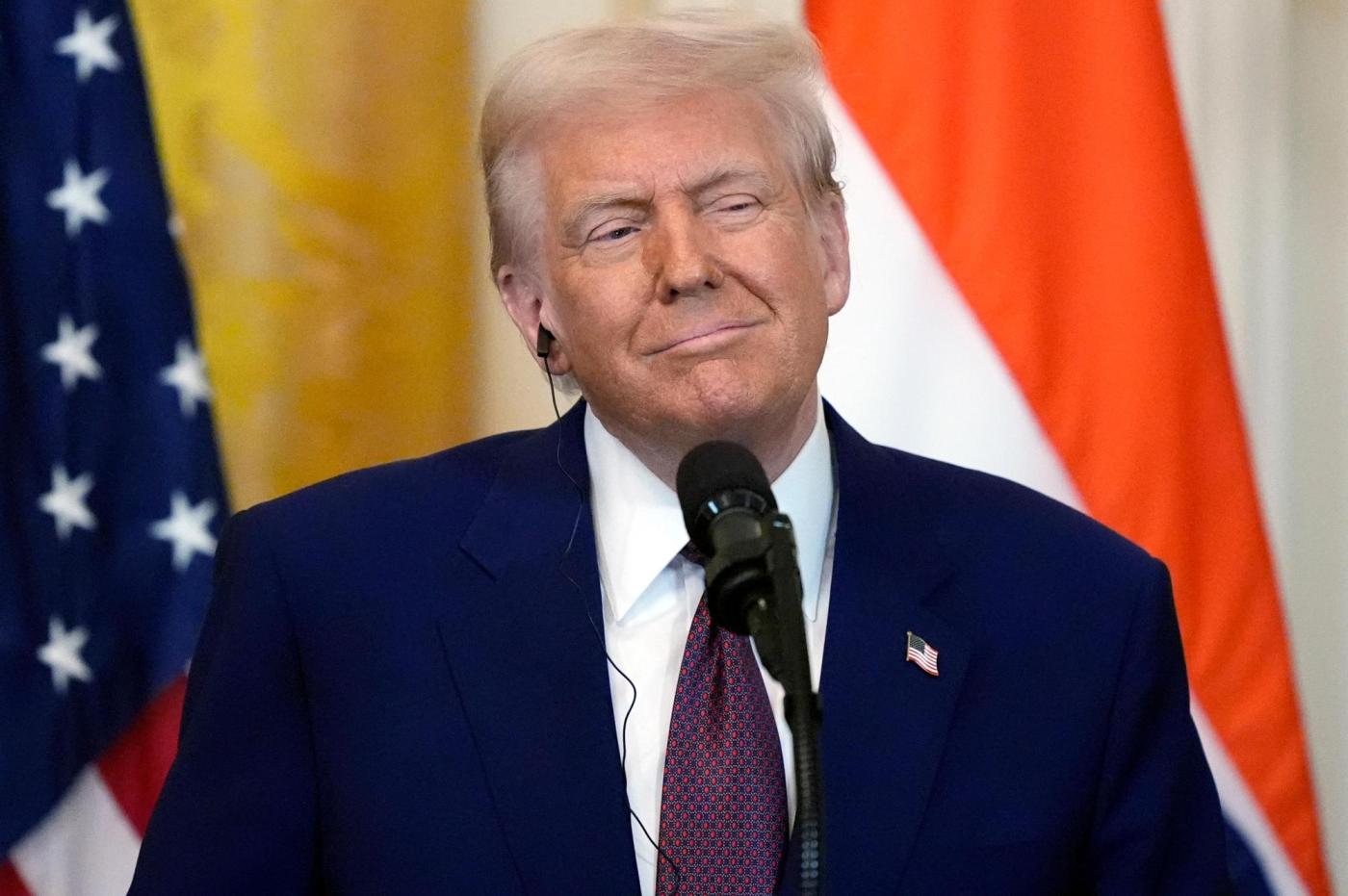
(Bloomberg/Alex Gabriel Simon) — Indian tech stocks declined on Monday on concern that US President Donald Trump’s hefty fee for new H-1B visas may lead to operational difficulties for outsourcing giants.
Trump’s overhaul of the program, by mandating a $100,000 fee for new applications, may disrupt projects of Indian outsources like Tata Consultancy Services Ltd. and Infosys Ltd. that derive a large chunk of revenue from the US.
TCS shares fell as much as 3.4%, the most in more than two months, while Infosys slipped as much as 3.9%. Tech Mahindra Ltd. declined 6.5%. Most stocks pared their declines later as analyst say the fact that fee hikes only apply to new visa applications means the impact on the sector would be limited.
The most likely scenario is large IT companies will increase offshoring, leaving no financial impact on them, according to a JM Financial note. “Importantly, with one of the biggest regulatory overhangs now behind, this event is net positive, in our view,” it said.
Related Articles
HSBC says increase in US H-1B visa costs Is ‘manageable’
Donald Trump’s pricey H-1B visas alarm prospects aiming for Silicon Valley jobs
Trump shapes immigration gilded age with $100,000 H-1B fee
India expresses concern about Trump plan to hike fees on H-1B visas that bring tech workers to US
Trump signs proclamation imposing $100,000 fee for H-1B visa applications
India’s IT services sector has already taken a hit from disappointing earnings for the April-June quarter and layoff plans by bellwether TCS, as customers curtailed technology spending amid flaring trade tensions. A gauge tracking the sector is down more than 18% this year, compared to the NSE Nifty 50 Index’s 6.5% gain.
Even so, smaller IT companies may take a bigger hit due to a higher dependency on the visa compared larger firms, which have reduced their exposure over the past few years, according to analysts. LTIMindtree Ltd. and Mphasis Ltd. shares declined by about 6% each. Larger firms have already been reducing reliance on H-1B visas.
“Companies will be forced to redesign their pricing plans to either offer an expensive onshore consulting model or a much cheaper offshore program where most of the work will be done outside the US,” Bloomberg Intelligence analysts Anurag Rana and Andrew Girard said.
Here’s what market watchers are saying:
Citi (strategists including Surendra Goyal)
Within IT companies, HCL Technologies and Infosys said earlier this year that 80% and 60%-plus of their US workforce is visa independent; companies with less US exposure will obviously be relatively less impacted
The impact will be largely visible starting in fiscal year 2027; some of it may be offset by higher outsourcing to India and lower outflow from education if Indian students refrain from studying abroad
JPMorgan (Toshi Jain)
The relative price of hiring workers on H1-B visas is expected to increase meaningfully
This is likely to force employers to (i) increase the ratio of off-shoring/near-shoring to onshoring and (ii) substitute H1B workers with local workers for onshored work
Jefferies (Akshat Agarwal)
The move will entirely offset EBIT per H-1B employee, driving a shift away from H-1B usage (7% to 12% of revenue) toward local hiring, subcontracting, and nearshoring or offshoring
The talent supply crunch will drive up onsite wages, which may drag profits by 4% to 13%. Growth may slow amid operating model shifts, macro pressures, and AI risk
Among large caps, we view Tata Consultancy and Infosys as well placed; among midcaps, Coforge Ltd.
Investec
Expects strong negative reaction on stocks, with midcaps more at risk than large caps
There will be an impact on margins, considering the sudden dislocation and the politics involved
Immigration advisor Fragomen suggests litigation to challenge the ban; any court order could be a reprieve that can squeeze shorts
Emkay (Madhavi Arora)
Services exports have finally been dragged into the ongoing global trade and tech war
Near-term impact on IT revenues may be limited, but if sustained, it may disturb Indian IT export companies’ traditional models
Indian vendors have been very adaptive in modifying their business models, but “we do see increase in risk premium impacting IT valuations”
–With assistance from Catherine Ngai, Ruth Carson, Ashutosh Joshi and Savio Shetty.
(Updates stock prices)
More stories like this are available on bloomberg.com
©2025 Bloomberg L.P.